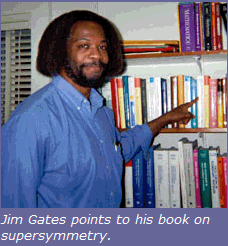|
|
|
|
|
|
|
News & Views item - October 2009 |
![]() Presidential Council of Advisors Told Some Home Truths. (October 30,
2009)
Presidential Council of Advisors Told Some Home Truths. (October 30,
2009)
Last week the US Presidential Council of Advisors on Science and Technology (PCAST) met for a couple of days and a considerable portion of the discussion was on what to do for and with science education.
 PCAST
Co-Chair
Eric Lander is of the view that "Filling the scientific
pipeline is a critical issue for this country. Our feeling was that we (PCAST)
cannot avoid taking on this challenge." Together with
James Gates they will lead a study with the expectations of
placing a report on President Obama's desk in six months.
PCAST
Co-Chair
Eric Lander is of the view that "Filling the scientific
pipeline is a critical issue for this country. Our feeling was that we (PCAST)
cannot avoid taking on this challenge." Together with
James Gates they will lead a study with the expectations of
placing a report on President Obama's desk in six months.
During the Bush years the National Science Board published its report (2007) which called for a national council to coordinate the country's STEM (science, technology, engineering, and mathematics) education system. It was largely ignored, but according to the board chair Steven Beering: "the problem hasn't changed, and I can't imagine how [PCAST] could come up with a different set of issues to address. The key is to get the White House and Congress to act on them."
President Obama's Secretary of Education Arne Duncan told PCAST: "Frankly, too often science and math are boring for children ... because it's been about memorizing facts, and because students have been taught by teachers who don't know the content themselves. In the end of the day, it's about how do you get more adults with those skills in front of children."
And according to Science's Jeffrey Mervis: "Cora Marrett, who leads the $1 billion education directorate at the National Science Foundation, homed in on the need to do more research on the undergraduate experience. That's where the nation's teachers are trained, and giving them a stronger foundation in math and science is seen as key to making them better STEM teachers," and "Carl Wieman, a physics Nobelist, wowed the council with preliminary data on how his research team has begun to transform introductory STEM courses at the University of Colorado, Boulder, by understanding how students learn and then getting faculty to modify their teaching. But Wieman also warned the council not to expect a quick fix. Asked by one member what PCAST could do to implement his work, Wieman answered: 'I'm not going to answer that. Despite the long-term nature of education reform, people always want a one-line solution.'"
It sounds all too familiar, perhaps our federal Minister for Education and the members of PMSEIC might thumb through the Lander-James recommendations when they publish them to see if there are any they consider useful for our local problems.